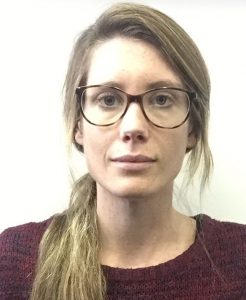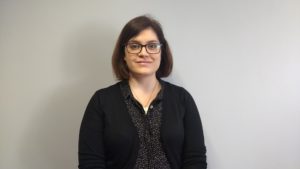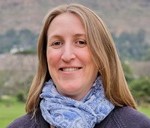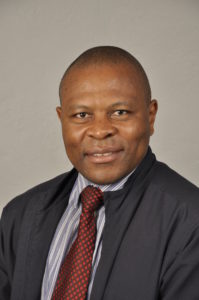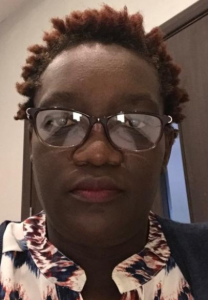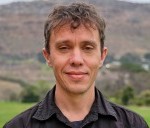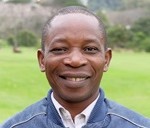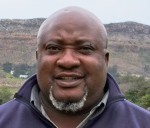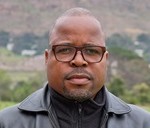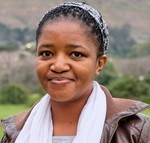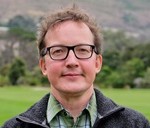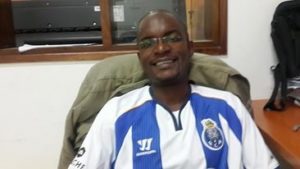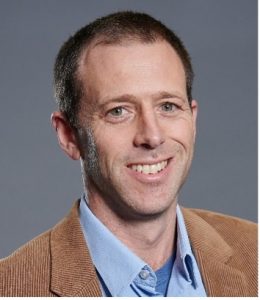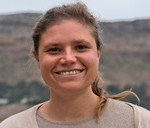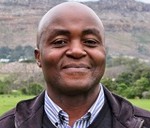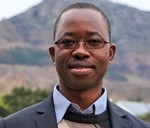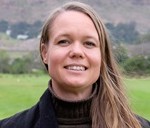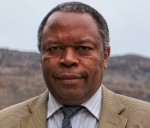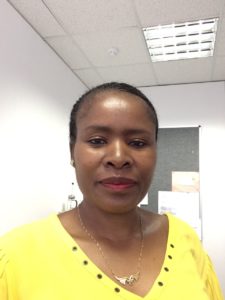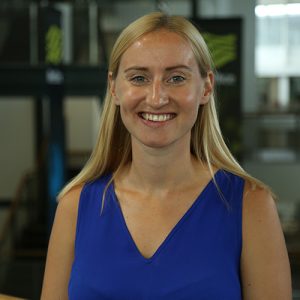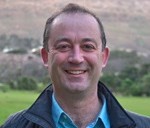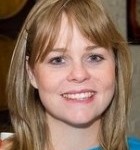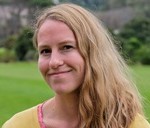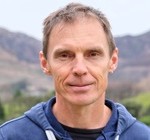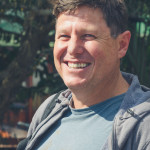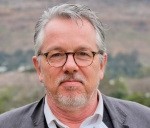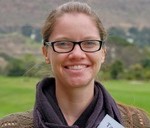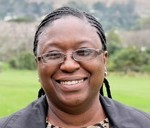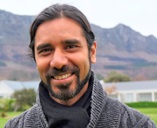
Dianne Scott
Organisation: African Centre for CitiesProject roles: Governance, decision making and nexus-related research
Professor Dianne Scott is a human geographer, with a focus on urban studies, who is currently an Honorary Research Fellow at the University of KwaZulu-Natal, Durban, South Africa and a senior researcher in the Africa Centre for Cities and Environmental and Geographical Sciences Department at the University of Cape Town. Her expertise lies in urban development in the global South, urban and environmental governance, science and society, political ecology, transdisciplinary knowledge production and critical social theory. Her current research focus is on urban governance; urban development and climate change, knowledge production for coastal zone governance; and urban spatial knowledge management. She is currently a co-Principal Investigator in the DST funded transdisciplinary Knowledge for Coastal Change project; the Climways research project focusing on the nexus of water governance and climate change comparing Durban and Cape Town; and the transdisciplinary FRACTAL research project the aim of which is to insert relevant climate information into the governance processes in sampled city-regions in southern Africa.

Bruce Hewitson
Organisation: Climate System Analysis GroupProject roles: Project lead, Climate Science, Downscaling
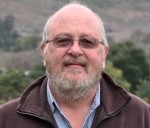
Professor Bruce Hewitson is a climatologist. He is currently the Director of the CSAG research group and the South Africa National Research Chair on Climate Change at the University of Cape Town. His research focus is on regional climate variability and his expertise includes climate modelling, climate change and downscaling. He has been part of strategic meetings and has held several invited leadership roles in international organisations, such as the Intergovernmental Panel on Climate Change and the World Climate Research Programme’s Working Group on Regional Climate. He has experience working with stakeholders and scientists across Africa. Outside of his core research area, he has wide ranging interests in appropriate technology, scientific capacity building and the science-society interface.
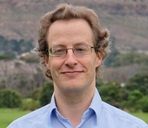
Alessandro Dosio
Organisation: European Commission Joint Research CentreProject roles:
Alessandro’s work relates primarily to regional climate change modelling and linkage with impact models (e.g. floods, crop yield , forest fires, etc), with the focus being on the problem of ‘downscaling’ and ‘bias-correction’. He is also investigating the feedback between land and climate by means of coupled climate-biogeochemistry models in the study of the effect of climate change on ecosystems. Alessandro has worked on the dispersion of passive and chemically reactive species in the convective boundary layer.

Alexander C. Ruane
Organisation: National Aeronautics & Space AdministrationProject roles:
Dr Ruane is a Research Physical Scientist at the NASA Goddard Institute for Space Studies. He is also co-Director of the GISS Climate Impacts Group and an adjunct Associate Research Scientist at the Columbia University Center for Climate Systems Research in New York City. He is the Research Coordinator and Climate Team Leader for the Agricultural Model Intercomparison and Improvement Project. He is Coordinating Lead Author for the Intergovernmental Panel on Climate Change Sixth Assessment Report (IPCC AR6), Working Group 1 Chapter 12: ‘Climate information for regional impact and for risk assessment’ and a member of the Core Writing Team for the IPCC Synthesis Report. He founded and Co-Chairs the Vulnerability, Impacts, Adaptation, and Climate Services (VIACS) Advisory Board for the Sixth Phase of the Coupled Model Intercomparison Project (CMIP6). He also sits on the Expert Committee for the United Nations Office for Disaster Risk Reduction (UNDRR) Global Risk Assessment Framework (GRAF), as part of which he co-chairs the ‘Fostering Systems Thinking’ Working Group.

Alice McClure
Organisation: Climate System Analysis GroupProject roles:
Alice McClure is the academic coordinator for FRACTAL. She works with project partners, funders and the wider FCFA group, coordinating FRACTAL’s engagements around and research into supporting resilient development pathways in southern African city regions. Her current research interests are in the African cities resilience agenda and the role of transformative approaches to learning (and knowing) in these contexts, particularly with regards to planning and decision-making. Her previous work in the climate change field includes designging and managing donor-funded adaptation projects (including GEF, Adaptation Fund and GCF) in Africa and Asia. She has worked with a variety of stakeholders, including representatives from government through to rural communities. She also implements and manages projects, and carries out Monitoring and Evaluation of adaptation projects.

Amy Davison
Organisation: City of Cape Town, Environmental Policy & StrategyProject roles:
Amy Davison is the Head of Environmental Strategy Implementation at the City of Cape Town. For more than a decade she has been working at a senior level in local government, in the area of environmental management and environmental sustainability. She is involved in co-ordinating and facilitating the implementation of the CoCT’s Climate Change Policy and at present she is working on drafting a comprehensive and integrated Climate Adaptation Action Plan for Cape Town. She recently contributed to the book Mainstreaming Climate Change in Urban Development: Lessons from Cape Town (edited by Dianne Scott, Helen Davies and Mark New).

Anna Steynor
Organisation: Climate System Analysis GroupProject roles:
Anna is the lead on climate services in the Climate System Analysis Group (CSAG). She has a background in applied climate science with a current research focus on the engagement of users and decision-makers in the use of climate information. Through Anna’s expertise in stakeholder engagement and climate services, she plays a key role in implementing and managing ‘research into use’ projects at CSAG as well as implementing capacity building initiatives. Her research interests include: climate services, user engagement in developing decision-relevant climate information, and science into use. Anna has 12 years experience working in science-user engagement, including 5 years working at the UK Climate Impacts Programme in Oxford.
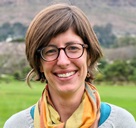
Anna Taylor
Organisation: African Climate & Development InitiativeProject roles: Embedded Research Coordinator
Dr Anna Taylor is a Research Fellow at the African Climate and Development Initiative (ACDI). She is a geographer and environmental scientist specializing in urban climate adaptation, with a particular interest in transformative ways of governing water-related risks and vulnerabilities. She engages in transdisciplinary research on climate resilient, sustainable urbanism, public decision making and multi-level governance. For 15 years, Anna has worked on research and consulting projects related to climate risks and adaptation. Her recent consulting projects have included developing a Climate Risk and Vulnerability Framework for the South African national government (Department of Environment, Forestry and Fisheries), and learning from case studies of using scientific climate information in decision-making in South African metropolitan municipalities (commissioned by the Cities Support Programme in the National Treasury).
Anna’s PhD and post-doctoral work focused on climate adaptation in southern African urban contexts (notably in Cape Town, Windhoek, Durban, Harare and Lusaka), contributing to the Mistra Urban Futures, CLIMWAYS, FRACTAL, LIRA 2030 and GreenGov projects. Her PhD involved a close partnership with the City of Cape Town municipal government, where she worked as an embedded researcher to analyse and contribute to the further development of adaptation processes and adaptive pathways. She also seeks to collaboratively build a future for the Cape Town Climate Change Think Tank (previously the City Lab), which generated many valuable insights and connections during its first phase. Before joining UCT in 2011, Anna worked for the Stockholm Environment Institute in Oxford, UK, on various international projects supporting climate vulnerability assessments and adaptation planning.
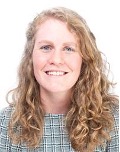
Anya Eilers
Organisation: ZutariProject roles: Researcher
Anya Eilers is a hydrologist specialising in earth sciences, environmental geochemistry, groundwater, water resources management and international development. Her project experience acquired in Ethiopia has developed her expertise in water resources management, climate change and international development extensively. Anya has two years of work experience in the Ethiopian water sector, where worked as an associate at the Global Green Growth Institute. During this time, she worked on projects with the Ministry of Water, Irrigation and Energy (MoWIE), donor organisations, NGOs and the private sector. She was actively involved with the government’s Water Sector Working Group, and has extensive networks in the Ethiopian water sector. At Zutari, Anya has technical and project management experiences for a range of integrated water resource managements projects, spanning across Kenya, the SADC region and South Africa. Anya is the chairperson for the Western Cape region for the Water Institute of Southern Africa’s (WISA) South African Young Water Professionals (YWP-ZA) empowerment platform. She is also a member of the International Water Association (IWA) and the International Association of Hydrogeologists (IAH). She obtained a MSc degree in Geology in 2017 and a BSc Hons in Earth Sciences in 2014 from the Stellenbosch University, South Africa. In 2013 she acquired a BSc in Earth Sciences from the same institution.
Arun Rana
Organisation: Swedish Meteorological & Hydrological InstituteProject roles: Researcher
Dr Arun Rana is a scientist at SMHI. His research areas include: bias correction; climate change impact assessment; multi-modelling; extreme event analysis and mapping; and remote sensing and spatial analysis. He holds a PhD in Water Resources Engineering from Lund University.
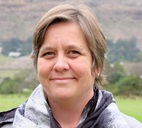
Bettina Koelle
Organisation: Red Cross Red Crescent Climate CentreProject roles: Community learning, Vulnerability, Adaptation
Bettina holds a Master’s Degree in Geography, Cartography and Anthropology of the Free University of Berlin. She has been working in the development field since 1997, focusing in transdisciplinary research and participatory methods. She is involved in climate change adaptation working with rural communities, training, social research, Participatory GIS and organisational development. Bettina is currently also undertaking her PhD studies in the field of climate change adaptation – focussing on how to increase problem solving communities in the adaptation process to increase resilience to climate change and climate variability.

Brenda Mwalukanga
Organisation: University of ZambiaProject roles: Embedded researcher
Brenda was the FRACTAL embedded researcher in Lusaka, Zambia. She worked at both the University of Zambia and Lusaka City Council. Her research interests include urban informality and a participatory approach to sustainable solutions in areas of housing, water and infrastructure development and maintenance. Additionally, Brenda is interested in climate change adaptation for cities aimed at building resilience, environment and society as well as inclusive and participatory approaches to decision making for climate change adaptation and mitigation. Brenda has undertaken research and training/capacity building around areas of decentralisation, formulation of development policies and implementation plans for urban informal areas.

Burnet Mkandawire
Organisation: The Polytechnic, University of MalawiProject roles:
Dr Burnet Mkandawire is Senior Lecturer and Head of the Electromechanical Engineering Department at the University of Malawi, the Polytechnic. His work focuses on innovative research and development solutions. For FRACTAL he helped to transfer academic knowledge around addressing the issues created by climate change to decision-makers in Blantyre.

Chipo Plaxedes Mubaya
Organisation: Chinhoyi University of Technology (Zimbabwe)Project roles: Mentor at START for FRACTAL
Dr Chipo Plaxedes Mubaya is currently the Deputy Director and Senior Research Fellow at the Directorate of Research and Research Mobilization, Chinhoyi University, Zimbabwe. She holds a PhD in Development Studies from the University of the Free State in South Africa. She has been part of projects that aim to engage local level stakeholders in a multidisciplinary setting, including a recent project that helped build adaptive capacity to deal with vulnerability to climate change. Her current research interests are in rural development, agriculture and natural resource management and rural/urban climate change adaptation.

Chris Lennard
Organisation: Climate System Analysis GroupProject roles:
Chris Lennard is a climatologist, with a background in Zoology and postgraduate degrees in Ocean and Atmospheric Science (B.Sc. Hons), Zoology (M.Sc.) and Climatology (Ph.D.). His Ph.D. tested the ability of a regional climate model (MM5) to capture extreme rainfall events over Cape Town, South Africa. He has lectured in a number of climate related courses at UCT. His current Cordex responsibilities include the engagement of users of climate information.

Christopher Jack
Organisation: Climate System Analysis GroupProject roles: Climate Science, Knowledge Management
Dr Chris Jack is Deputy Director at the Climate System Analysis Group (CSAG), based at the University of Cape Town, South Africa. He has a background in fundamental climate science and modelling, but more recently he has gained considerable experience in science-society engagement and communications. He is passionate about working across disciplines in complex problem spaces and his current research interest is in urban climate resilience in developing contexts. His early career was in computer science, and he is therefore able to provide strategic oversight to CSAG’s High Performance Computing facility and bit data storage services, as well as broader leadership within the research group.

Daithi Stone
Organisation: Lawrence Berkeley National LaboratoryProject roles:
Daithi’s research interests focus around the detection and attribution of climate change, and its effects on human and natural systems. Essentially this means trying to figure out whether and by how much human activities are causing various aspects of the climate system to change, and trying to figure out whether and by how much those changes in the climate system are affecting human and natural systems. His recent focus has been on the attribution of changes in the chances of extreme weather events, such as extremely hot seasons or wet seasons. One aspect of this is the Weather Risk Attribution Forecast, the world’s only real-time service to examine whether and how greenhouse gas emissions have contributed to our weather. A particular goal is to focus on the attribution of the risk of damage. It is not entirely clear how this can be done systematically, but we are testing various options.
Eddie Jjemba
Organisation: Red Cross Red Crescent Climate CentreProject roles:
Eddie Jjemba joined the Climate Centre in 2015. He is an experienced facilitator with more than 10 years’ work on urban resilience projects in Africa. He holds an MSc in Climate and Society through the University of Columbia, New York.
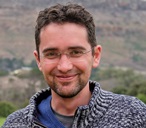
Francois Engelbrecht
Organisation: Council for Scientific & Industrial ResearchProject roles:
Engelbrecht leads the climate studies, modelling and environmental health research group at the CSIR. He obtained a PhD in meteorology (2006) at the University of Pretoria, and specialises in the fields of numerical climate model development and regional climate modelling. Engelbrecht currently leads the development of the first African-based Earth system model in collaboration with national and international partners. He is an extraordinary associate professor at North-West University and an honorary research associate of the University of the Witwatersrand. Engelbrecht also serves as an invited member of the Working Group on Numerical Experimentation of the World Climate Research Programme.

Genito Maure
Organisation: University of Eduardo Mondlane (Mozambique)Project roles:
Genito Maure is Assistant Professor at the Faculty of Science of Eduardo Mondlane University. He completed his PhD in Environmental & Geographical Sciences at the University of Cape Town in South Africa.
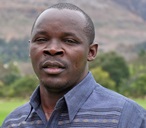
Gilbert Siame
Organisation: University of ZambiaProject roles:
Dr Gilbert Siame is a Lecturer and Researcher at the University of Zambia. He is also Director of the Centre for Urban Research and Planning. He previously interned with the Zambian affiliate of Shack/Slum Dwellers International: People’s Process on Housing and Poverty in Zambia (PPHPZ). His work included monitoring housing demolitions associated with the (currently underway) Lusaka Ring Road Project.
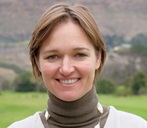
Gina Ziervogel
Organisation: African Climate & Development InitiativeProject roles:
Associate Professor Gina Ziervogel is a geographer by training, with 12 years of experience in the field of adaptation and vulnerability to global environmental change. She is a Senior Lecturer in the Department of Environmental and Geographical Science researching issues related to development in a context of climate change. Through this she has focused on a number of areas including municipal adaptation strategies, institutional barriers to adaptation, flood governance, water and food security. Gina completed her PhD in Geography at the University of Oxford in 2002 after completing her BSc at the University of Cape Town and her Honours in Environmental Water Management at Rhodes University.

Grigory Nikulin
Organisation: Swedish Meteorological & Hydrological InstituteProject roles:
Grigory Nikulin is a research scientist in the Rossby Centre (SMHI) and his main research activity is analysis of both global and regional climate models. A large part of his research focuses on how the statistics of weather and climate extremes may change in the future under different climate scenarios. Involved in analysis of climate information in many European and international projects (IMPACT2C, HEALTHY FUTURES, EUPORIAS, SPECS, SIDA-ESCWA, and CORDEX) his current focus is on providing climate information for impact studies. He is WP leader in the FP7 project EUPORIAS and a member of WRCP CORDEX Scientific Advisory Team.
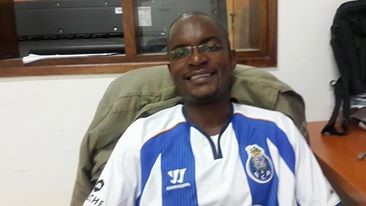
Hecralito Mucavele
Organisation: University of Eduardo Mondlane (Mozambique)Project roles:
Hécralito Mucavele is FRACTAL’s Embedded Researcher in Maputo, where he has worked for Conselho Municipal de Maputo for ten years. As part of FRACTAL he used his skills and contextual city knowledge to contribute to solving the problems created by climate change in Maputo. He helped to jointly produce new knowledge on climate change and urban development relevant to the city of Maputo and its surroundings and was involved in all FRACTAL learning processes in the city, supporting the municipality in robust decision-making processes that integrate relevant climate information.
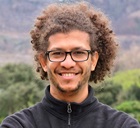
Izidine Pinto
Organisation: Climate System Analysis GroupProject roles:
Izidine Pinto is a climatologist at CSAG. He is interested in regional climate responses to human activities in Africa, with a focus on climate modelling for short term weather forecasts, and climate projections. He is currently involved in research that is developing regional climate change projections through the framework of distillation, downscaling and understanding the driving dynamics. A main interest is in modelling extreme weather events, contributing to more accurate future projections, and ultimately to improving decision-making at a city level. Izidine is the lead author of the 6th Assessment Report of the Intergovernmental Panel on Climate Change (IPCC), Working Group 1. Originally from Mozambique, he moved to Cape Town in 2009, when he joined CSAG initially for his MSc (2011), followed by a PhD (2015) on improving the understanding of future changes in extreme weather events in Southern Africa.

James Cullis
Organisation: ZutariProject roles:
James is a Technical Director in the Water Resources Group at Zutari based in Cape Town, South Africa. He is a specialist in the field of water resources engineering, integrated water resources management (IWRM), the water-energy-food nexus, resilience, sustainability, and climate change impacts and adaptation, particularly in Africa, working on a wider range of water, resilience and sustainability related projects. He has a broad range of experience, including technical engineering hydrology and design as well as social, political, environmental and economic aspects of water resource. For two years James was also the Global Service Group Leader for Water at Aurecon, assisting in developing Aurecon’s capabilities in the Water sector in Australia and New Zealand.
James obtained a Doctor of Philosophy in 2011 from the University of Colorado, Boulder in the USA, a Master of Science in Environmental Change and Management in 2002 and an MA (Oxon) in Politics, Philosophy and Economics (PPE) in 2001, both from the Oxford University in the United Kingdom. In addition, he obtained a Bachelor of Science in Civil Engineering (Cum Laude) in 1998 from UCT. He is a registered professional engineer with the Engineering Council of South Africa (ECSA) and is a member of the South African Institution of Civil Engineering (SAICE), and the International Water Association (IWA), as well as a fellow of the South African Academy of Engineering (SAAE). As a scientist, James has research experience in South Africa, UK, USA, and Antarctica. He is an Honorary Research Associate with the African Climate and Development Initiative at the University of Cape Town and external examiner for the Department of Civil Engineering.
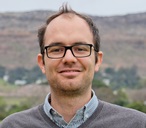
Jean Pierre-Roux
Organisation: Coordination, Capacity Development and Knowledge Exchange UnitProject roles:
Jean-Pierre provides knowledge management support for SouthSouthNorth’s projects, including CDKN. He joined the team in February 2013. He holds a Bachelors Honours in Philosophy from the University of Cape Town and a Masters in Environmental Policy from Oxford. He has a research interest in African energy policy.

Jessica Kavonic
Organisation: ICLEI-Local Governments for Sustainability - Africa SecretariatProject roles:
Jess Kavonic completed a Masters Degree in Climate Change and Sustainable Development at the University of Cape Town in 2013. Subsequent to joining ICLEI Africa she worked at the City of Cape Town focusing on a range of projects and programmes whilst engaging with communities to bridge divides between people and nature, and build sustainability at a local level. Jess joined ICLEI’s Cities Biodiversity center to work on the Urban Natural Assets for Africa Project (UNA Africa). UNA Africa – focusing on Ethiopia, Tanzania, Malawi and Cape Town – aims to improve human well-being and resilience of the urban poor, through the conservation of local biodiversity and through capacity building of local government and other important stakeholders.

John K. E Mfune
Organisation: University of NamibiaProject roles:
Professor John Mfune is an Associate Professor and Head of Biological Sciences Department at the University of Namibia. He has taught at a tertiary level for more than 20 years. His wide-ranging research interests include human-wildlife conflicts, host-parasite interactions, and climate change. He is actively involved in environmental policy issues in Namibia, and helped to draft the Namibia Climate Change Policy and associated Climate Change Strategy and Action Plan. He also led the team who developed the Namibian National Biodiversity Strategy and Action Plan 2011-2020. He was recently awarded a research grant from START to conduct collaborative research on ‘Water security in Windhoek: governance, water demand and supply, and livelihoods in the context of urbanization and climate change’.
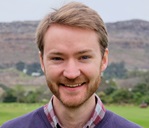
Joseph Daron
Organisation: Met Office Hadley CentreProject roles:
Joe is a climate scientist with an interest in climate prediction and the use of climate information to guide adaptation and development decisions. His work focuses on the analysis and communication of climate model output to inform risk management across regions and sectors, with a primary focus on developing countries in Africa and Asia.
Currently, Joe is a senior scientist in the Climate Information for International Development team at the Met Office Hadley Centre. Alongside FRACTAL, he is leading the scientific components of a project funded by the UK Department for International Development (DFID) titled, “Building Resilience to Climate Extremes following Typhoon Haiyan in the Philippines”. The project aims to inform planning and resilience building efforts in the Philippines, with a focus on the changing risks associated with tropical cyclones and sea level rise. Working together with the Philippine Atmospheric, Geophysical and Astronomical Services Administration (PAGASA), the project involves downscaling CMIP5 global climate models, using the Met Office regional climate model HadGEM3-RA, as well as communicating climate projections and broader risk information to stakeholders across the Philippines.
Julie Arrighi
Organisation: Red Cross Red Crescent Climate CentreProject roles:
Julie is an Associate Director, leading the Climate Centre’s work in urban areas. She is an expert in climate risk management, focusing on early warning/early action mechanisms and natural resources management. She supports American Red Cross programs in Africa.
Julio Araulo
Organisation: Coordination, Capacity Development and Knowledge Exchange UnitProject roles:
Julio is a Research Officer at FCFA. He manages research projects and led on a pilot project for Rwanda’s climate and environment fund (FONERWA) to help integrate climate considerations into fund operations. He provides support to the WISER Transform project where he contributed towards a guidance manual on co-production approaches. Previously, Julio worked on projects that looked into agricultural adaptation to climate change for a range of vulnerable cropping systems in South Africa and Rwanda. He holds a BSc in Environmental & Geographical Science and a BSc Honours and MSc in Atmospheric Science from the University of Cape Town.

Katinka Waagsaether
Organisation: Climate System Analysis GroupProject roles:
Katinka joined CSAG’s Climate Services team in 2015, and has since been involved in a range of short and long term projects relating to climate change impacts, adaptation and vulnerability. Katinka holds a Masters degree in Environmental and Geographical Science at the University of Cape Town, and spent her first years after graduating working with a South African NGO focusing on the practical aspects of climate change adaptation.

Kenneth Gondwe
Organisation:Project roles:
Kenneth Joseph Gondwe is a Senior Lecturer at Malawi Polytechnic which he joined in 2003. Before moving to The Polytechnic he was Director of Technical Services at Malawi Industrial Research and Technology Development Centre (MIRTDC), a post he had held since January 1998. Prior to that he worked as Principal Research Officer (1997-1998) and senior research officer for MIRTDC. Kenneth has also been involved in climate change studies for Malawi since August 2000. MIRTDC has the mandate to undertake industrial research and technology development and dissemination. Kenneth also worked for Lever Brothers Malawi (1987-1993) in various technical positions, the last of which was factory manager. He holds a BSc in Mechanical Engineering with distinction from Malawi Polytechnic (1987) and Masters of Manufacturing Engineering from Oklahoma State University, USA (1996). He has also attended various short courses in management and environment. He has recently joined membership of the Air Pollution Information Network for Africa.
Kirsten Kennedy
Organisation: Coordination, Capacity Development and Knowledge Exchange UnitProject roles:

Kornelia Iipinge
Organisation: University of NamibiaProject roles:
Kornelia Ndapewa Iipinge was the Embedded Researcher for the FRACTAL project in Windhoek, Namibia. She has a BSc. Hons in Integrated Environmental Science from the University of Namibia and an MSc. in Integrated Water Resources Management from the University of Zimbabwe as one of the Southern African Development Community 2015/16 WaterNet fellows. Her experience is in natural resource management, ecological restoration research and project management.

Lapogang Mogale
Organisation: University of BotswanaProject roles:
Dr Lapologang Magole is a Senior Lecturer at the University of Botswana’s Department of Architecture and Planning. She is a Regional Development Planner by profession. She holds a Master of City Planning (MCP, Regional Development Planning) from the University of Manitoba in Winnipeg, Canada and she received her PhD in Development Studies (Environmental Policy Analysis) at the University of East Anglia in the UK. Her current research considers how communities adapt and become resilient to climate variability and change. Dr Magole is an environmental policy analyst and policy planning process facilitator. She has experience in stakeholder participation management for development and natural resources planning, meeting facilitation and strategic planning. She is also an experienced trainer in participatory planning and co-learning methods.

Laura Burgin
Organisation: Met Office Hadley CentreProject roles: Researcher
Dr Laura Burgin is an applied climate scientist. As part of the Climate Information for International Development Team at the Met Office Hadley, she works with regional climate models to produce climate information for international development. Alongside FRACTAL, her current research projects include the ‘Decentralised climate information services for decision making in western Kenya’ project, which aims to develop demand-led, decentralised climate information services at a county level, and the MARIUS project, which uses expertise across disciplines together with key stakeholder engagement to understand and predict future water scarcity in the UK.
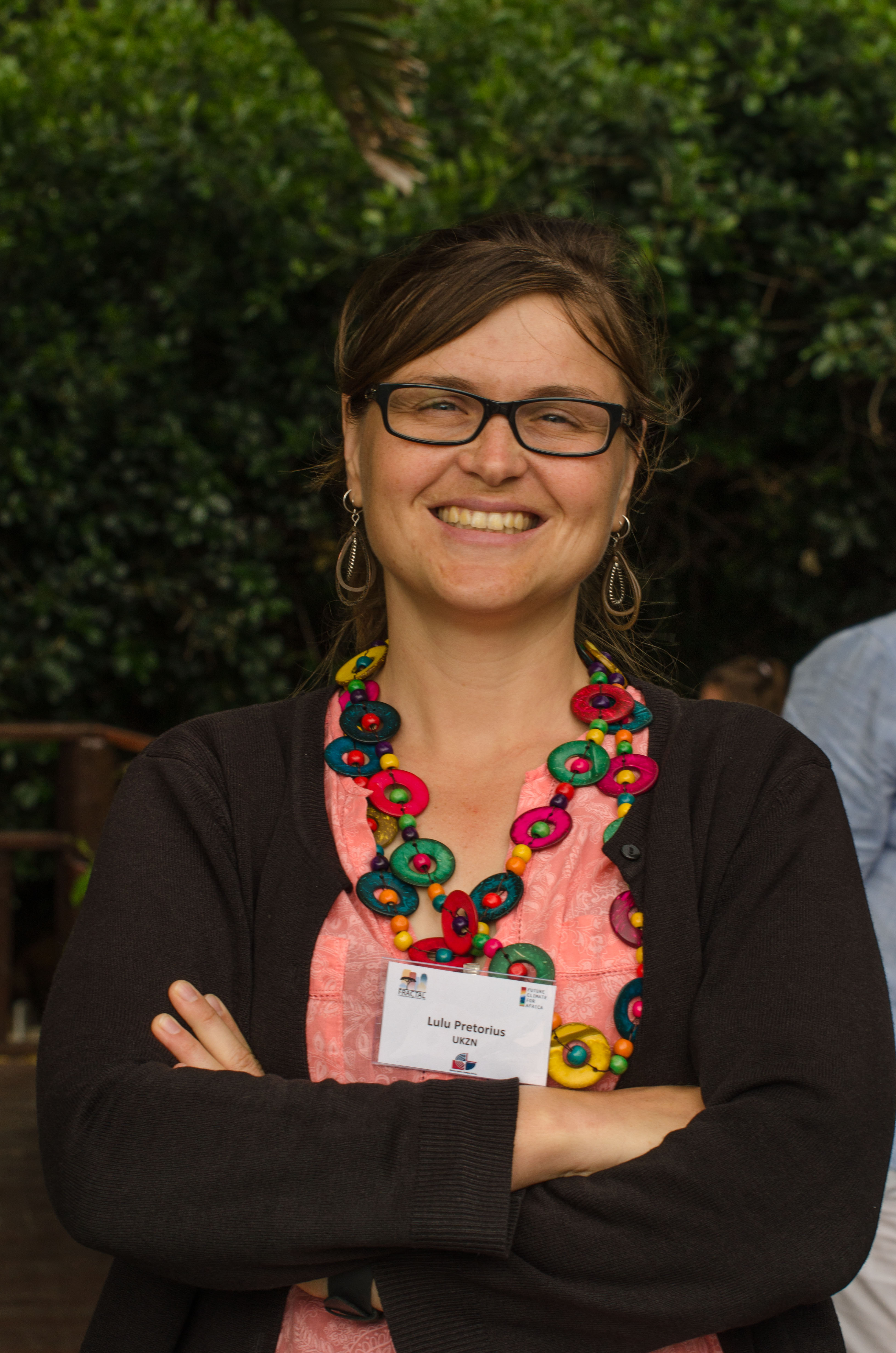
Lulu van Rooyen
Organisation: eThekwini, Environmental Planning & Climate Protection DepartmentProject roles:
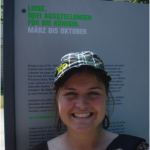
Dr Lulu van Rooyen (née Pretorius) holds a B.Sc. in Environmental Science and a B.Sc. (Hons) in Plant Science, both from the University of Pretoria, and an M.Sc and PhD in Environmental Management from the University of South Africa. Lulu has worked as an environmental and ecological consultant, for environmental companies as well as in a freelance capacity.
Since 2012 Lulu has been part of an NGO called the Centre for Wetland Research and Training. Through this she partakes in research projects, student training, capacity building activities, and acts in an advisory capacity for stakeholders from all spheres, on a part time basis. Between 2012 and 2015 she acted as a research coordinator for the University of the Free State on a German-South African collaborative research project (Alliance for Wetland Research and Restoration) on peatlands in South Africa.
In November 2016 she was employed at the University of KwaZulu-Natal to act as an embedded researcher in the eThekwini Municipality, as part of the Durban Research Action Partnership (D’RAP). In this role she is to develop and implement a long-term biodiversity monitoring program.

Mark New
Organisation: African Climate & Development InitiativeProject roles:
Mark New was appointed Pro-VC for Climate Change and Director of the ACDI in July 2011. He holds a joint appointment as Professor of of International Development at the University of East Anglia, United Kingdom. His research focuses on climate change detection, processes, scenarios, impacts and adaptation. He sits on the SA Global Change Science Committee, the Africa Future Earth Science Committee, is on the editorial board of Environmental Research Letters, and has served on various other science committees and reference groups. In his research on climate change monitoring and detection he has worked on the development of global and regional climate datasets which have underpinned climate impacts assessments and integrated modelling, the detection of climate extremes, and issues around uncertainty and accuracy of climate data. His work on climate change scenarios includes the UNDP climate change profiles which provide a consistent set of climate scenarios for over fifty developing countries, and scenarios for islands of the Caribbean as part of the CARIBSAVE project; a key interest with regard to scenarios has been approaches to represent uncertainty in future climate. His research on impacts and adaptation has addressed broader adaptation policy issues around high-end climate change and dangerous climate impacts, approaches to adaptation decision-making under uncertainty. Much of this work has been applied through the lens of water resource planning, such as in the EPSRC project he leads, ARCC-Water – Adaptive and Resilient Water Systems.

Mark Tadross
Organisation: Climate System Analysis GroupProject roles:
Mark is involved in African climate variability, seasonal forecasting and climate change issues. He works with the Climate Systems Analysis Group (CSAG), based in the EGS department. Mark’s research interests include intra-seasonal rainfall characteristics important for agriculture (e.g. rainfall onset/cessation and frequency/intensity of dry/wet spells), their physical causes and potential predictability. Ongoing work on the onset of the maize growing season relates to food security concerns across the region. He presented at regional climate outlook forums (SARCOF), farmers associations and both local and international conferences. Mark was a reviewer for IPCC WGII AR4.
Mark is a project manager on Assessment of Impacts and Adaptations to Climate Change (AIACC) funded project AF07. The project collaborates with international partners and African scientists to produce detailed climate change scenarios for Africa using Regional Climate Models (RCMs). An important aspect of this project is to build capacity within Africa to use RCMs for climate research using PC (Linux) hardware e.g. have set up modelling facilities at University of Zambia and Zimbabwe Meteorological Services. He is involved with assessing GCM climate change predictions for Africa and assessing different RCMs (MM5, Precis), their physics and the feedbacks of vegetation and the land surface on local climates. Mark participated as a principal developer in a pan-South Africa project to improve seasonal forecasting in southern Africa using General Circulation Models (GCMs). He installed UK met office global climate model (UM) on Compaq alpha platform and developed shell-scripts/C code for data ingestion and post processing. Mark tested physics options to reduce simulation biases in the southern African region and he wrote code for and implemented the UM seasonal forecasting system, which currently feeds into the regional outlook issued by the South African Weather Service.
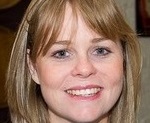
Meggan Spires
Organisation: ICLEI-Local Governments for Sustainability - Africa SecretariatProject roles:
Dr Meggan Spires manages the climate change adaptation and biodiversity workstream at ICLEI Africa. Prior to joining ICLEI Africa she worked as a Climate Protection Scientist and Specialist Climate Change Consultant at eThekwini Municipality, where she was involved in the planning and implementation of the eThekwini Municipal Climate Protection Programme. Meggan holds a PhD in Environmental Science from Rhodes University. The focus of her research was on investigating the barriers to and enablers of municipal planned climate change adaptation. Meggan is driven to improve the way municipalities do business, which includes considering the implications that climate change is having and will have on their ability to fulfill their mandates and deliver services.
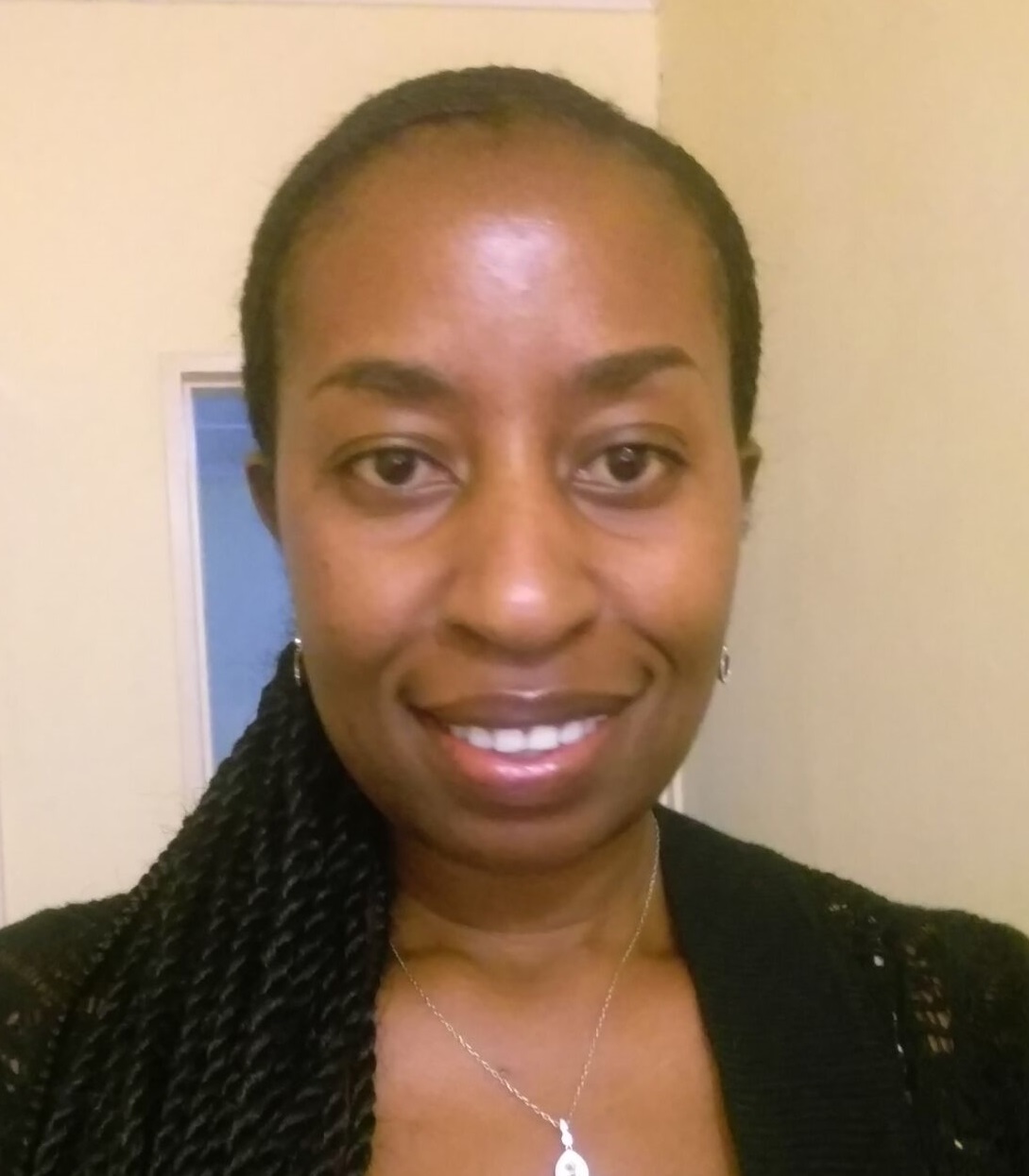
Mzime Murisa
Organisation: Global Change SysTem for Analysis, Research & TrainingProject roles:
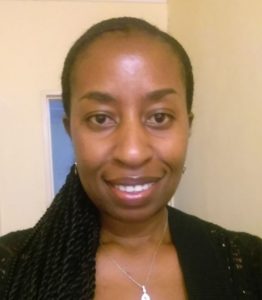
Dr Mzime Ndebele-Murisa is an ecologist with extensive experience in biodiversity and conservation, natural resources management, environmental change analysis – particularly climate trend analyses and modelling – aquatic and wildlife ecology, and climate adaptation. She is a Program Specialist at START International where her current projects include FRACTAL and the Education Partnership for Innovation in Communities (EPIC). She is passionate about using participatory, inclusive and bottom-up approaches to solve environmental climate change issues. She has worked with environmental management, research and policy organizations in Africa and beyond, as well as various networks. She was previously based at Chinhoyi University of Technology and the University of Zimbabwe. She has a PhD from the University of the Western Cape in South Africa, an MSc in Tropical Resource Ecology and a BSc in Biological Sciences from the University of Zimbabwe.
Nicholas Walker
Organisation: ZutariProject roles: Researcher
Dr Nicholas Walker is currently an independent hydrologist based in the UK. Previously he was employed as a Principal Consultant in Hydrology in Aurecon’s Cape Town office, where he was involved in water resource and agriculture projects. These include hydrological catchment modelling, flood hydrology for climate-smart infrastructure, agro-hydrological modelling and hydrological studies for EIAs.
Nicholas has more than a decade of research and consulting experience, including his time served as a postdoctoral fellow jointly at the Department of Botany, the University of Cape Town (UCT) and the South African National Biodiversity Institute (SANBI). Nicholas has researched the links between geomorphology, ecology, soils and hydrology. He also has experience in eco-hydrology, crop modelling, modelling the impacts of climate change, environmental water requirements (EWRs) and water supply feasibility studies.
Nicholas obtained a Doctor of Philosophy in Hydrology from the University of KwaZulu-Natal, South Africa, in 2005. He also holds a Master of Science in Irrigation Engineering from the University of Southampton in the United Kingdom (UK), as well as a Bachelor of Science with Honours in Environmental Science from the University of Brighton in the UK, in 1999 and 1994, respectively. Nicholas is a registered professional natural scientist with the South African Council for Natural Scientific Professions (SACNASP) and a member of the International Association of Hydrological Sciences (IAHS).

Niki West
Organisation:Project roles:
Niki joined START as a program specialist, managing the Pan-Asia Risk Reduction (PARR) Fellowship Program and contributing to a range of START programs. Niki holds a Bachelor of Commerce from the University of Alberta and a Master of Environmental Management in Environmental Economics and Policy from Duke University. Niki previously engaged in research-for-development program coordination and water-energy-food nexus research at the Consultative Group for International Agricultural Research (CGIAR) Challenge Program on Water and Food-Mekong (CPWF-Mekong) in Lao PDR. Most recently, Niki led the design and partnership development for the first primary academic research study of fugitive methane emissions in a Canadian shale play at the David Suzuki Foundation. She has also conducted ecosystem services and natural capital research and strategic planning at the World Wildlife Fund (WWF) in Washington, DC and Ausenco in Peru.
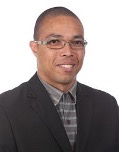
Paulo Lehener Junior
Organisation: ZutariProject roles: Researcher
Paulo is a civil engineer with more than 11 years of professional experience in various projects relating to rural, peri-urban and urban water supply, during which he has undertaken borehole supervision and geophysical surveys. He has participated in several hydrological studies for the use of surface and groundwater for various purposes in Mozambique. Paulo obtained a Bachelor of Engineering in Civil Engineering from the Universidade Eduardo Mondlane (UEM), Mozambique, in 2011. He is registered as a candidate engineer with the Engineering Council of South Africa (ECSA) and is a member of the Water Institute of Southern Africa (WISA).

Piotr Wolski
Organisation: Climate System Analysis GroupProject roles:
Piotr is a hydrologist. Maybe even a wetland hydrologist. He likes to get his feet wet and measure water in swamps for a living. But he is to do this no more. Piotr has discovered joys of juggling climate data, of Python, R, ssh, vim and qsub. Thus he is here, at CSAG. Using climate models’ output for hydrological analyses in the context of climate change impact assessment, attribution and seasonal forecasting. Trying to figure out how the uncertainties and errors propagate through the various processing steps, and how to extract useful information out of this somewhat messy business. Bridging surprisingly disparate worlds of climate and hydrological modellers.
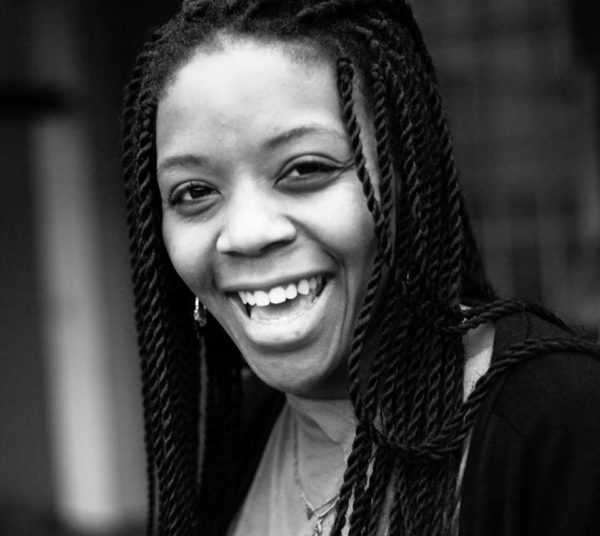
Rebecca Ilunga
Organisation: ZutariProject roles:

During the FRACTAL project, Rebecca worked as a civil engineer at Zutari in Cape Town. She has since moved to join the C40 Cities Network where she is currently Water Security Network Manager for the Adaptation Implementation Initiative. She is responsible for supporting city efforts to improve their water security. She has experience in integrated water resource management (IWRM), catchment hydrology, flood hydrology and water resource modelling, as well as stakeholder engagement. She has a BSc in Civil Engineering from the University of Cape Town (UCT), South Africa, in 2014 and a MSc in Water and Environmental Management at Loughborough University, United Kingdom. Her Masters research considered the application of bottom-up adaptation decision support for resilient water resource management and security in African cities.
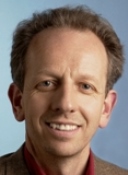
Richard Jones
Organisation: Met Office Hadley CentreProject roles:
Richard is a Science Fellow and manages work on generating and applying regional climate information and modelling systems with a focus on international development. Richard has a PhD in mathematics, specifically in the analysis of numerical methods relevant to oil reservoir modelling, and immediately prior to joining the Hadley Centre was a postdoctoral researcher in the Mathematics Department at Oxford University. He joined the Hadley Centre in 1990 where he developed its regional climate modelling capability and has subsequently applied it in many innovative ways – developing a consistent GCM/RCM modelling system; for systematic domain-size experiments; to develop climate timescale simulations driven by numerical weather prediction analyses; to provide multi-decadal regional climate change projections; developing GCMs to provide high quality boundary conditions for RCMs; to provide ensemble detailed regional climate change Scenarios. He was a lead author of the regional climate information chapters of IPCC Assessment Reports Three (Chapter 10) and Four (Chapter 11). He led the development of the regional climate modelling system PRECIS and has worked with institutes across all continents in the fields of climate prediction and climate scenario development.
Richard Taylor
Organisation: Stockholm Environment Institute, OxfordProject roles:
Richard is a Senior Research Fellow at SEI. He is also a visiting staff member at MMU Business School and a member of the European Social Simulation Association. Together with his colleagues he has worked on many climate adaptation and mitigation projects. He developed the climate adaptation options explorer (ADX) tool and often contributes to the weADAPT knowledge base.
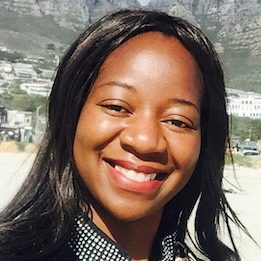
Rudo Mamombe
Organisation: Chinhoyi University of Technology (Zimbabwe)Project roles: Embedded Researcher
Rudo Mamombe was the FRACTAL Embedded Researcher in the Harare City Council’s water department. She completed her MPhil studies at the Chinhoyi University of Technology and was a research assistant in the Department of Freshwater and Fishery Sciences. Her current research focuses on issues to do with water and energy systems, urban governance and decision-making in Harare.
Ruth Butterfield
Organisation: Stockholm Environment Institute, OxfordProject roles:
Ruth is Centre Director of SEI Oxford. She has experience in the fields of agriculture, water and climate change impacts and adaptation. Sheis helping to develop the SEI Oxford’s weADAPT platform. She has developed climate change vulnerability assessments for countries involved in ACCCA projects using GIS, models and multiple data sources. As part of the Environmental Change Institute at the University of Oxford, Ruth worked on two of the largest EU projects on climate change impacts and European agriculture: CLIVARA and CLAIRE.
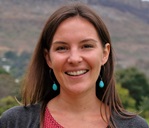
Sarah Schweizer
Organisation: Global Change SysTem for Analysis, Research & TrainingProject roles:
As Director of Programs for the International START Secretariat, Sarah develops project concept notes and program proposals, designs and leads execution of project activities, manages START budgets and engages in outreach to START partners and donors. She also manages day-to-day activities of START program staff. Previously, Sarah was a Research Associate for the Colorado State University Department of Human Dimensions of Natural Resources, where she managed the NSF sponsored project: Climate Change Education Partnership. She has investigated climate change resilience, communication, and decision-making within the U.S. National Park Service and helped to develop the agency’s national climate change response strategy. She holds a Master of Science in Human Dimensions of Natural Resources and a Bachelor of Science in Environmental Communication from Colorado State University.

Sean O’Donoghue
Organisation: eThekwini, Environmental Planning & Climate Protection DepartmentProject roles:
Dr Sean O’Donoghue has a PhD in Marine Pelagic Ecology from the University of KwaZulu-Natal. In March 2011, Sean joined eThekwini Municipality, or Durban, where he manages the Climate Protection Branch. A key focus of the Branch is Community Ecosystem Based Adaptation, providing work opportunities for Durban’s indigent populations. Sean manages a number of research, inter-city and community partnership projects, and is working closely with C40, particularly the Cities Finance Facility, who are helping to develop a business case for the city to self-fund its community stream management programme, Sihlanzimvelo.
Shaban Mawanda
Organisation: Red Cross Red Crescent Climate CentreProject roles:
Shaban Mawanda has over 13 years of experience as a humanitarian and development professional. He has led adaptation and risk reduction initiatives in the Horn of Africa and other parts of the world. He has also worked supporting country and regional projects that aligning civil society activities with government strategic frameworks.
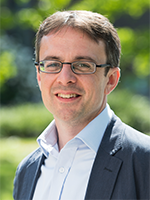
Simon Dadson
Organisation: University of Oxford (UK)Project roles:
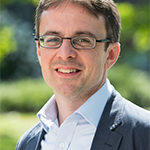
Simon Dadson is a Professor in Physical Geography at the University of Oxford. His work in climate change, hydrology and earth surface processes is widely published in scientific journals (including Nature, Science, Geophysical Research Letters, Proceedings of the Royal Society and Water Resources Research) and he is the author of a recent book: Statistical Analysis of Geographical Data. His research has also been featured in print and broadcast media.
Simon holds an MA from the University of Oxford, an MSc from the University of British Columbia, and a PhD from the University of Cambridge. He is an Honorary Fellow of the Centre for Ecology and Hydrology. He is Academic Director of Oxford’s MSc in Water Science Policy and Management.
He is regularly asked to advise governments and national and international institutions. In previous projects, he has quantified the effects of climate change on river flows and water resources availability for the Department of Environment Food and Rural Affairs. For a DFID funded project, Simon integrated a river flow model into the Met Office’s regional climate model to enable developing countries to predict the effects of climate change on flood and drought risk. He is lead author of the Oxford Martin School Floods Restatement, which evaluated the scientific evidence base for natural flood management in the UK. He also serves as a member of the OECD Global Water Partnership Task Force on Water Security, Risk and Growth. He is a member of the Court of the University of Reading and a Trustee of Christ Church, Oxford.

Stefan Raubenheimer
Organisation:Project roles:
Stefan is co-founder and Director at SouthSouthNorth (SSN), and has led most of the SSN Programmes since its inception in 1999. The SSN Group includes the SSN Trust, where he is Executive Officer, and SSN Consulting, where he is a Director. He is currently co-leading the MAPS programme, and Directing the CCKE unit within the FCFA. He serves as member of the Network Council of the Climate and Development Knowledge Network. Stefan is an Associate of the Cambridge Programme for Sustainable Leadership; and an accredited Mediator, Arbitrator and Facilitator with TOKISO. Stefan has published a book on the LTMS, and acted as lead author in a MAPS book. He has extensive experience in facilitating development and climate change projects, including the South African LTMS process. He holds a Bachelor of Arts and a Bachelor of Law.
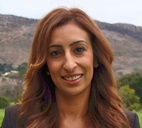
Sukaina Bharwani
Organisation: Stockholm Environment Institute, OxfordProject roles:
Sukaina Bharwani is co-leader of the SEI theme Reducing Climate Risk and has been a staff representative on the SEI Board. Sukaina Bharwani has a Ph.D. in Applied Computing (Social Sciences) and a BA (Hons) in Social Anthropology. Her inter-disciplinary research in Social Anthropology and Computer Science provides her with a unique range of qualitative and quantitative skills linking vulnerability, livelihoods, and adaptation with biophysical analyses in innovative ways (Kemp-Benedict et al.,2010). Her current research involves a country pilot study for the Future Climate for Africa (FCFA) programme, intended as a follow-on to the Climate Science Research Partnership (CSRP) with the UK Met Office Hadley Centre. The new programme’s aim is to produce and enhance the availability and accessibility of robust and ‘decision relevant’ climate information products to inform climate-resilient investment, policy and strategies across sub-Saharan Africa. Case studies will focus on urban adaptation in coastal cities of Accra and Maputo. Her research focus on decision-making and integrating different types of knowledge has included work with Google.org to develop innovative methods for the visualisation and dissemination of climate adaptation information integrating Google Earth within weADAPT.org, resulting in the Adaptation Layer. Other innovative projects funded by CDKN, involve the linking of climate data to weADAPT, connecting it to climate data in the Climate Information Portal (CIP) and with communities of practise such as AfricaAdapt, and improving the semantic technology capabilities using a climate adaptation thesaurus developed by Reegle.

Tahia Devisscher
Organisation:Project roles:
Tahia Devisscher joined SEI Oxford as a Research Fellow in 2008. Since April 2016 she has worked with SEI as a Research Associate from Vancouver, Canada. Her main focus is on social-ecological system dynamics, adaptive governance, and ecosystem-based adaptation.
Tahia has ten years of experience working at the interface of environment, climate change, and development. In recent projects, such as FRACTAL, TransRisk and EcoAdapt, Tahia is applying inter-disciplinary approaches to integrate qualitative and quantitative data to support adaptation decisions and low-carbon transitions in the context of forest landscapes and urban environments. Tahia is also working with partners in the development of weADAPT.org, a global knowledge platform designed to promote collaboration and learning on climate adaptation. She has also coordinated, facilitated and engaged in trainings, co-exploration workshops and the development of toolkits for participatory vulnerability analysis, adaptation planning and climate risk communication in different regions of the world. Before joining SEI, Tahia worked for various organizations including the World Bank, the United Nations Development Programme, World Vision and The Nature Conservancy. She was Lead Author of two chapters for the Global Environment Outlook 5 (GEO-5), Science Writer for the UNEP Year Book in 2011 and 2009, and Researcher for the UNDP Bolivia Human Development Report in 2008.
Tahia holds a PhD from the University of Oxford. For her dissertation she assessed wildfire dynamics in southern Amazonia using a social-ecological systems approach. She analysed interactions between climate change and different development trajectories, and assessed alternative management strategies and associated impacts. Methods included probabilistic spatial modelling, remote sensing, fuzzy cognitive mapping, ethnographic fieldwork and statistical analysis. Tahia holds a two-year MSc (Hons) in Environmental Science, Policy and Management from the University of Manchester, IIIEE-Lund University and Central European University. She was awarded the Development Cooperation Prize by the Belgian Government for her Master thesis research on the sustainability of palm oil production in Borneo, Malaysia. She obtained the BSc (Hons) in Environment and Development from the University of Zamorano, Honduras.

Tamara Janes
Organisation: Met Office Hadley CentreProject roles:
Dr Tamara Janes is a climate scientist at the MET Office Hadley Centre. She holds an MSc in Atmospheric Sciences from the University of Alberta, Canada. Her current areas of interest include monsoon dynamics, regional climate modelling, the communication of climate science and stakeholder engagement and capacity building. She focuses on international development as part of the Climate Information for International Development team in Asia and Africa and is involved in training activities in developing countries for the use of the PRECIS regional climate modelling system. Her first degree was a BSc in Astrophysics.

Victor Indasi
Organisation: Climate System Analysis GroupProject roles: Post-doc
Victor joined CSAG in February 2016 as a Postdoctoral Research Fellow working within FCFA’s FRACTAL project after graduating from Curtin University. Victor is mainly involved in developing user-relevant climate metrics appropriate to the unique contexts of eight cities in southern Africa. Prior to joining CSAG, Victor worked for CRC CARE – Advanced Doppler LIDAR project in Perth and IGAD Climate Prediction and Application Centre (ICPAC) in Nairobi.

Wilma Nchito
Organisation: University of ZambiaProject roles:
Wilma lectures in the Geography Department at the University of Zambia. She has an interest in sustainable development, together with research skills in Qualitative Research, teaching statistics and SPSS, and Remote Sensing, ArcGIS. Wilma holds an MSc. degree from the London School of Economics and Political Studies and a Ph.D. from the University of Zambia.




